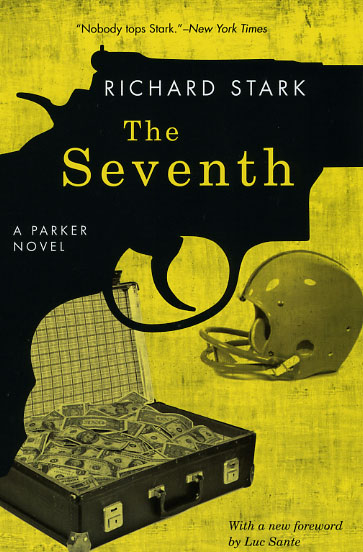Reading Outside the Genre
 I used to get advice about how I needed to read outside my genre, and I didn’t.
I used to get advice about how I needed to read outside my genre, and I didn’t.
I used to get advice about studying other writers for technique, too, and I at least understood that — thanks to Dr. Karl Barnaby’s great class on writing techniques I learned how to slow down to see how the sentences work, and to examine why THIS particular action scene was so effective.
One of the reasons that I thought I didn’t need to read outside my genre was because there was so much of my genre yet to read (and the genre’s even larger now). It’s always good to understand the history of your genre if you’re going to be working in it. But I think the other reasons were laziness, arrogance, and no good sign posts. Who can you trust about what’s really worth your time? You have to be careful. I mean, every crappy science fiction series gets devoted fans, which is why I didn’t try Firefly (and discover how wonderful it was) for years.
This is all leading to a simple recommendation. I, personally, recommend to fantasy fans that they need to read a few books outside of their genre by Donald Westlake writing under the Richard Stark pseudonym.
Back when I was recovering from my knee surgery I finally dug out some books my buddy John Hocking had sent me, and one of them was the first Parker novel, by “Richard Stark.”
I have almost no interest in modern fiction. I have zero interest in crime fiction. But Hocking’s rarely steered me wrong, and the Parker novels… wow. I ended up reading a bunch of them from the library and I liked them so much I’ve decided to pick up copies to add to my permanent collection. I don’t do that much any more. As a matter of fact, mostly I downsize, selling off or giving away stuff I’m never going to read again and that the kids don’t want.
 What’s so great about Parker? Well, here’s a site with a great number of details, but my thumbnail reasons for any writers reading this are pacing, plotting, and action sequences. Oh, and there’s constant surprise. You soak up enough Parker books and I bet your own pacing can’t help but be more turbo-charged, and maybe your plotting will start clicking along with fewer bumps as well. It’s been working for me, at least according to my beta readers.You can dismiss this stuff as “simple” but the Parker novels are deceptive. They’re like some average looking car with a beautiful souped up engine. You’ll be surprised by the great ride, and you may not even notice just how finely tuned the thing is if you don’t look under the hood. The more you read, the better you realize just how much Westlake/Stark knows what he’s doing, the more you’ll learn, and the more fun you’ll have.
What’s so great about Parker? Well, here’s a site with a great number of details, but my thumbnail reasons for any writers reading this are pacing, plotting, and action sequences. Oh, and there’s constant surprise. You soak up enough Parker books and I bet your own pacing can’t help but be more turbo-charged, and maybe your plotting will start clicking along with fewer bumps as well. It’s been working for me, at least according to my beta readers.You can dismiss this stuff as “simple” but the Parker novels are deceptive. They’re like some average looking car with a beautiful souped up engine. You’ll be surprised by the great ride, and you may not even notice just how finely tuned the thing is if you don’t look under the hood. The more you read, the better you realize just how much Westlake/Stark knows what he’s doing, the more you’ll learn, and the more fun you’ll have.
Most of the Parker novels have been reprinted in a nice matched set by the University of Chicago Press in recent years, and I’ll probably accumulate them all. (The last few are still in print through another publisher.) I’ve never been much of a matched set guy — it’s the words between, not the covers, that matter to me — but I have so much respect for these that I’ll probably go to the bother. I know I’ll be re-reading. I think I’m even adding Westlake as Richard Stark up amongst my very favorite authors list. That’s two new ones I’ve added in just the last five years, both outside my genre, the first being western writer Ben Haas, who almost always wrote under a pseudonym himself.
That’s enough for today. Time to get writing.
3 Comments